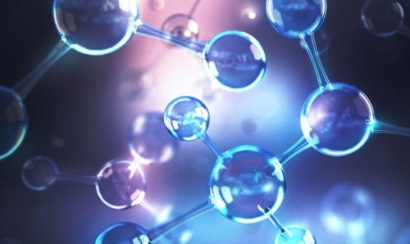
The project is backed by an investment of €89 million. The funding approved for the project’s launch on August 1, 2020, amounts to €30 million. As a result, the real-world laboratory project has taken a significant step forward towards its goal of progressively establishing a regional hydrogen economy on an industrial scale.
The consortium brings together a total of ten partners: EDF Deutschland, Holcim Deutschland, OGE, Ørsted Deutschland, Raffinerie Heide, Heide’s municipal utility, Thüga, and thyssenkrupp Industrial Solutions, along with the Region Heide development agency and the Westküste University of Applied Sciences.
They plan to produce green hydrogen, transport it in the gas network, use it in industrial processes and to interlink different material cycles within the existing infrastructure. This will allow the decarbonization of industry, mobility and the heating market to be tested under real conditions – with the overriding objective of climate protection.
“An electrolysis plant with a capacity of 700 MW – this is our vision and the next milestone in implementing the development targets laid down in the national hydrogen strategy by 2030,” says Jürgen Wollschläger, managing director of Raffinerie Heide and coordinator of the project. “Starting from today, the WESTKÜSTE100 partners will be working together to create this green future and build an ecologically and economically sustainable business model. We see the energy transition as a cross-sectoral endeavor. With industry, science and politicians all pulling together, our 700 MW vision will become reality.”
Schleswig-Holstein’s state president Daniel Günther also welcomed the decision, saying, “I am delighted that the WESTKÜSTE100 real-world laboratory is the first hydrogen project among the winners selected in last year’s national ideas competition to receive funding approval.”
Launch of the initial project phase – the electrolysis plant
The funding approval enables work to begin on the first phase of the project, which is set to run for five years. A newly formed joint venture, H2 Westküste GmbH, comprising EDF Deutschland, Ørsted and Raffinerie Heide, is to build a 30 MW electrolyzer which will produce green hydrogen from offshore wind energy and provide information on the operation, maintenance, control and grid compatibility of the equipment.
Jean-Marc Bazenet, managing director of EDF Deutschland GmbH, and Christelle Rouillé, CEO of Hynamics stated, “The EDF Group welcomes the decision to grant Federal Ministry of Economic Affairs funding, which will facilitate and accelerate the construction of further large electrolysis plants… This project forms part of the hydrogen strategy of the EDF Group overseen by Hynamics which is targeted at decarbonizing the mobility and industrial sectors. We are very proud to be actively involved in implementing the federal government’s hydrogen strategy and thus contributing to its energy transition.”
What is special and innovative about the WESTKÜSTE100 project is the linking of different sectors within an existing regional infrastructure. This also includes the integration of green hydrogen in the existing process at Raffinerie Heide in a move intended to replace the use of grey hydrogen. In addition, part of the generated hydrogen will be transported via a newly built hydrogen pipeline to Heide’s municipal utility for transfer to the natural gas grid. In a future stage, there are plans to supply a hydrogen filling station.
All the milestones devised during the WESTKÜSTE100 project form the basis for the next, scaling stages. The vision for all partners is to build a 700 MW electrolysis plant, with the future prospect of making use of the waste heat and oxygen arising during the electrolysis process. Further plans include the production of climate-friendly aviation fuels and large-scale supply to gas grids.
In the future manufacture of fuel, hydrogen from electrolysis and unavoidable CO2 from a regional cement plant in Schleswig-Holstein will be used in the process. During the initial phase of the WESTKÜSTE 100 project preparations will be made for converting the Lägerdorf cement plant to a more environmentally friendly (oxyfuel) combustion process.
“We are delighted to contribute our expertise in the manufacture of green hydrogen by electrolysis and in the exploitation of CO2 as a raw material for green methanol to this outstanding project. This will help further reinforce the leading role of German industry in hydrogen technologies,” stated Sami Pelkonen, CEO Chemical & Process Technologies at thyssenkrupp.
Prof. Dr. Katja Kuhn, president of Westküste University of Applied Sciences, stated, “I am very proud of our involvement in this real-world laboratory as a university partner. We will be responsible for technical, legal and social aspects and will nurture close contact to our university networks through our Campus100 project. We are particularly delighted that our students will have the opportunity to take part in research associated with such an important energy transition project.”
In the next stage of the project, scaling of the electrolysis plant in the order of 700 MW is planned, for which the electricity will be generated by an offshore wind farm. The project work conducted as part of WESTKÜSTE 100 will lay the foundation for this and create the necessary know-how.

